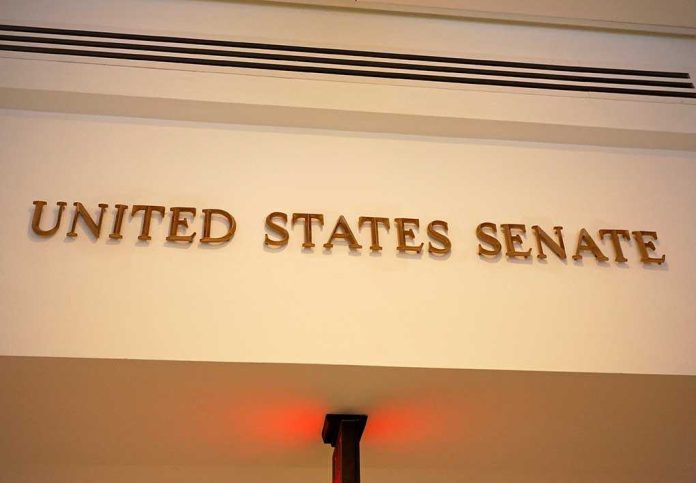
Trump’s push to end the Senate filibuster signals a major shift in conservative strategy, opening the door for swift legislative action—and igniting fierce debate over the future of constitutional checks and minority rights.
Story Snapshot
- Trump calls for abolishing the Senate filibuster after GOP election setbacks, urging Republicans to clear obstacles for their legislative agenda.
- Ending the filibuster would empower the majority to pass sweeping laws with a simple majority, threatening minority party leverage and longstanding Senate norms.
- Conservative voters see the filibuster fight as a battle for constitutional government, individual liberty, and resistance to leftist policy overreach.
- Debate intensifies in 2025, with Trump’s stance dividing Republicans and alarming Democrats, as both sides warn of long-term consequences for U.S. governance.
Trump’s Filibuster Reversal: A Conservative Power Play
Donald Trump’s return to the White House in 2025 has brought a renewed focus on Senate rules, particularly the filibuster. Historically, conservatives defended the filibuster as a safeguard for minority rights and a check on hasty lawmaking. Now, after years of leftist-driven gridlock and GOP electoral losses, Trump has flipped the script, urging Republicans to eliminate the filibuster to push conservative policies without obstruction. This strategic pivot is viewed by many on the right as a necessary response to years of Democrat overreach and partisan stalling that left key priorities—border security, fiscal discipline, and constitutional rights—on the back burner.
Trump’s argument is straightforward: the filibuster, once a shield for conservative values, has become a tool for the left to block mandates from America’s heartland. By demanding its abolition, Trump is challenging Senate tradition and pressuring Republican lawmakers to prioritize results over process. GOP leaders remain divided. Some, like Mitch McConnell, warn that abandoning the filibuster could backfire, allowing future Democrat majorities to steamroll conservative priorities. Others, however, see the filibuster as an outdated relic standing in the way of meaningful reform—especially after years of progressive agendas threatening gun rights, parental authority, and fiscal sanity.
Senate Divide and the Constitutional Stakes
Inside the Senate, debate is fierce. Trump’s influence over the GOP base has forced the party to confront its own divisions, with grassroots conservatives demanding action while old-guard senators cling to procedural tradition. Democrats, meanwhile, exploit Republican infighting to warn Americans of impending “majoritarian rule” and the loss of minority protections, hoping to rally their base ahead of the next election cycle. The stakes are high: ending the filibuster would mean a simple majority could approve far-reaching laws on everything from border enforcement to regulatory rollback, at a time when traditional values and constitutional freedoms are perceived as under siege.
For many constitutional conservatives, the filibuster fight is about more than Senate arcana—it’s a battle for the soul of the Republic. They argue that restoring limited government and individual liberty requires overcoming institutional barriers that have enabled leftist activism and bureaucratic overreach. However, critics caution that eliminating the filibuster could erode the Senate’s unique role as a deliberative body, concentrating power in the majority and enabling whiplash policy swings with each change of party control. The debate underscores deep-rooted frustrations with Washington’s gridlock and the erosion of foundational American principles.
Potential Fallout: Policy, Precedent, and Polarization
If the filibuster falls, the short-term result would be a rapid legislative push by the GOP to reverse the damage of past progressive policies—securing the border, reining in federal spending, and defending traditional values against woke encroachments. Yet experts warn of profound long-term consequences. The Senate could become a mirror of the polarized House, minority voices would lose leverage, and future majorities—left or right—could transform the country’s laws with little restraint. The risk, according to analysts, is permanent instability and deeper national division, as each side seeks to undo the other’s work rather than build consensus.
While no formal Senate action on the filibuster has occurred yet, Trump’s crusade has already reshaped the conservative agenda, placing institutional reform at the center of the national debate. For conservative Americans weary of gridlock, government overreach, and the relentless advance of leftist policies, the filibuster fight is both a warning and a call to action. Whether the GOP ultimately follows Trump’s path or pulls back in favor of tradition, the outcome will have lasting implications for the Constitution, the role of Congress, and the future of American self-government.




